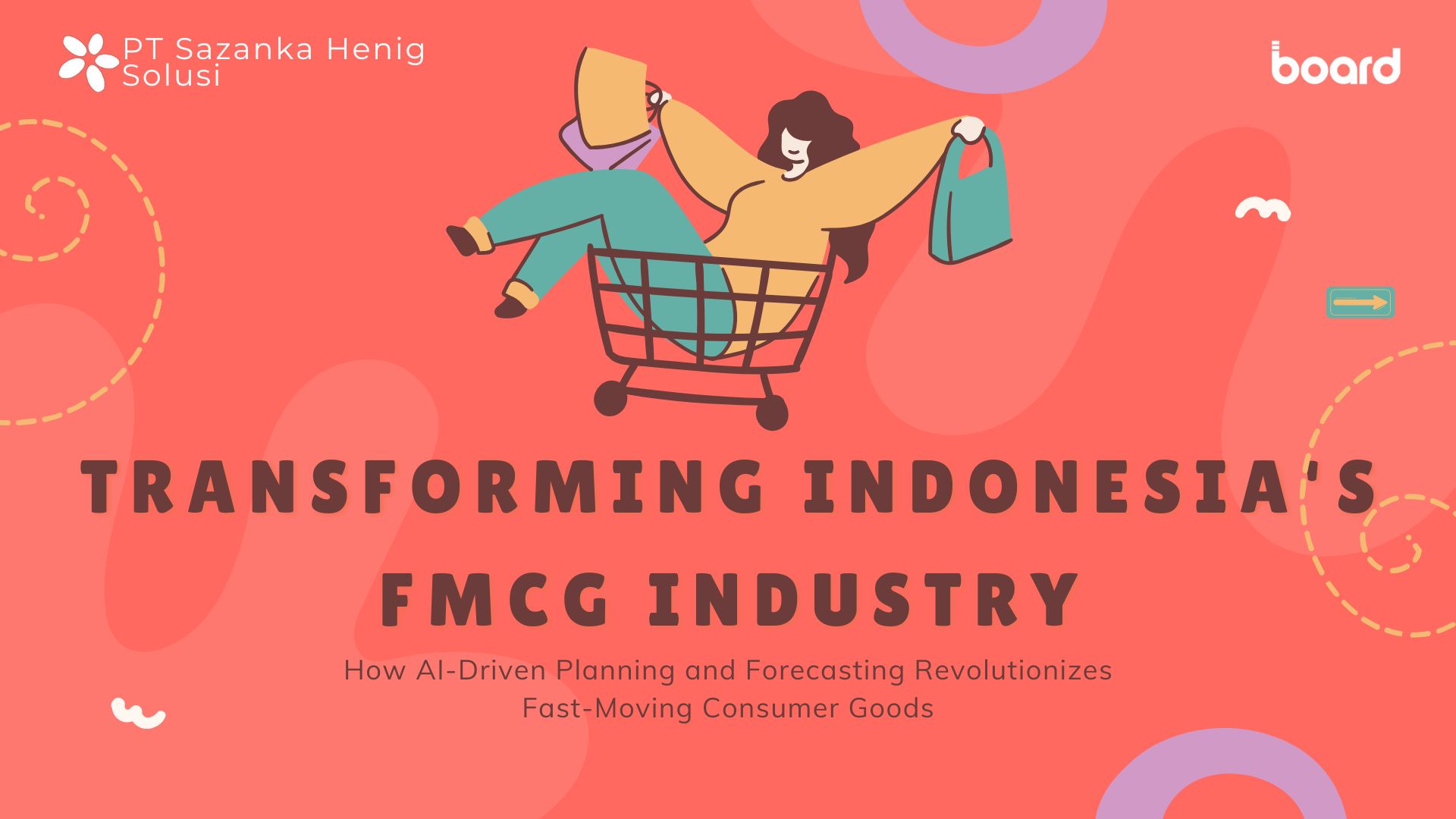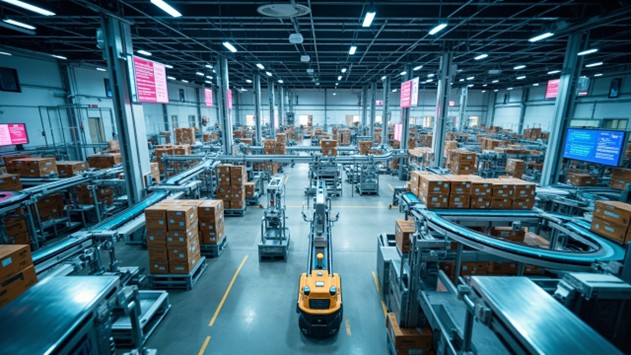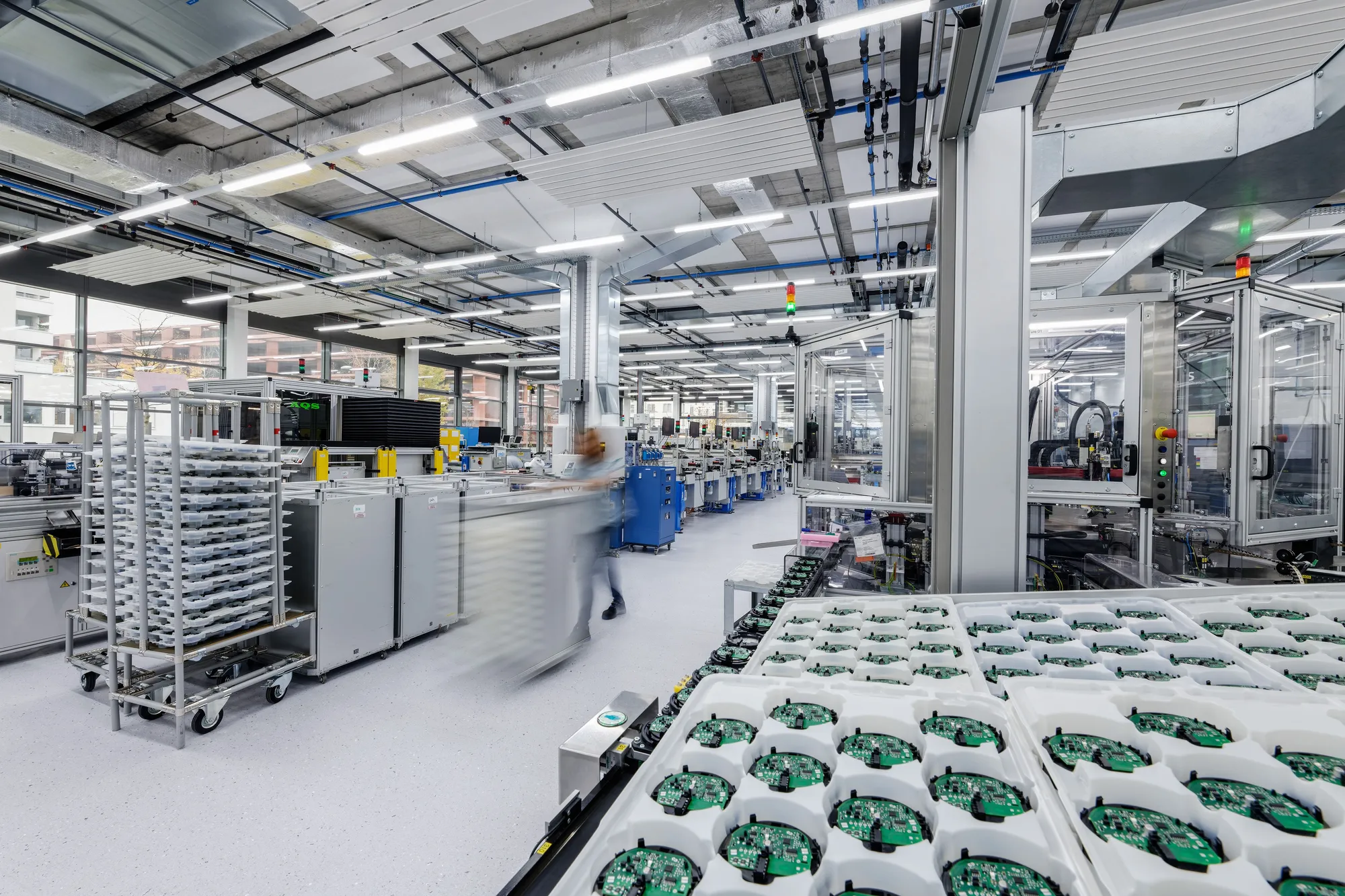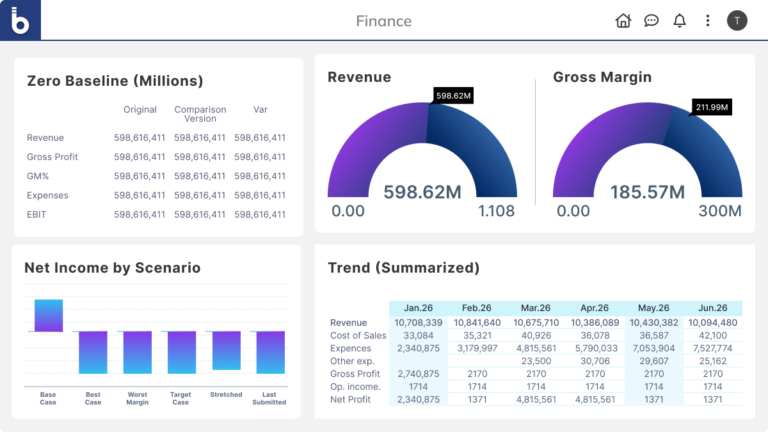
The Fast-Moving Consumer Goods (FMCG) industry in Indonesia stands at a critical juncture. With a population exceeding 270 million people and a rapidly expanding middle class, the archipelago nation presents one of Southeast Asia's most dynamic consumer markets. Yet beneath this promising surface lies a complex web of operational challenges that traditional planning methods can no longer adequately address.

Indonesia's FMCG sector represents a cornerstone of the national economy, encompassing everything from packaged foods and beverages to personal care products and household essentials. The industry has witnessed remarkable growth, with market value reaching approximately $45 billion in 2024, driven by urbanization, rising disposable incomes, and evolving consumer preferences.
The demographic dividend is particularly striking. With over 60% of the population under 40 years old, Indonesia boasts a tech-savvy, brand-conscious consumer base that demands convenience, quality, and value. This young demographic has fundamentally altered consumption patterns, embracing e-commerce platforms and demonstrating loyalty to brands that align with their values.
Digital Commerce Revolution
The digital transformation of Indonesian retail has been extraordinary.E-commerce penetration has surged from less than 5% in 2018 to over 15% by 2024, with projections suggesting it could reach 25% by 2030. This shift has created both opportunities and complexities for FMCG companies, who must now navigate omni channel strategies while maintaining profitability across diverse sales channels.
Traditional retail formats—from modern hypermarkets to traditional warungs—continue to play vital roles, creating a multi-layered distribution ecosystem that requires sophisticated planning and coordination.

Sustainability and Conscious Consumption
Worldwide, FMCG companies are grappling with increasing consumer demand for sustainable, ethically-sourced products. In Indonesia, this trend is particularly pronounced among urban millennials and Gen Z consumers, who are willing to pay premium prices for products that demonstrate environmental responsibility.
Personalization at Scale
The era of one-size-fits-all products is rapidly ending. Modern FMCG companies are leveraging big data and artificial intelligence to create personalized product offerings and targeted marketing campaigns. This trend demands unprecedented precision in demand forecasting and inventory management.
Supply Chain Resilience
The COVID-19 pandemic exposed vulnerabilities in global supply chains,prompting FMCG companies to prioritize resilience alongside efficiency. For Indonesian companies, this means balancing cost optimization with risk mitigation across the archipelago's challenging geography.
Demand Volatility and Consumer Unpredictability
Indonesian FMCG companies face unique challenges in predicting consumer demand. Seasonal variations, religious holidays, economic fluctuations, and rapidly changing social trends create a complex forecasting environment.Traditional planning methods, often relying on historical data and manual adjustments, struggle to capture these dynamic patterns.
Consider the impact of Ramadan on food and beverage consumption, or how social media trends can suddenly spike demand for specific beauty products.These phenomena require planning systems that can incorporate real-time data and adjust forecasts dynamically.
Inventory Management Complexity
The fast-moving nature of FMCG products creates a delicate balancing act.Overstocking leads to waste and margin erosion, while understocking results in lost sales and customer dissatisfaction. This challenge is amplified in Indonesia's diverse market, where consumer preferences vary significantly between regions and demographic segments.
Organizational Silos and Data Fragmentation
Many Indonesian FMCG companies struggle with disconnected planning processes. Sales, marketing, finance, and supply chain teams often work with limited coordination, leading to suboptimal decisions and missed opportunities.
Unified Planning Platform
Modern AI-driven platforms eliminate organizational silos by integrating financial, operational, and sales planning into a single source of truth. This unified approach enables cross-functional collaboration, ensuring all departments work toward aligned objectives with consistent data and assumptions.
Machine Learning-Powered Demand Forecasting
AI-powered forecasting systems analyze vast datasets to identify patterns and predict future trends. These systems can process historical sales data,economic indicators, weather patterns, social media sentiment, and promotional activities to generate accurate, granular forecasts at the SKU level across different regions and channels.

Real-Time Analytics and Scenario Planning
Advanced platforms enable FMCG companies to simulate the impact of various business decisions and external events. Companies can model the effects of new product launches, promotional campaigns, pricing changes, and supply chain disruptions to optimize their strategies.
Improved Forecast Accuracy
Companies implementing AI-driven planning solutions typically see forecast accuracy improvements of 15-30%, directly translating to reduced inventory costs and improved service levels.
Enhanced Operational Efficiency
Automated planning processes reduce manual effort by up to 60%, allowing teams to focus on strategic analysis rather than data compilation and basic forecasting tasks.
Better Decision-Making Speed
Real-time data integration and automated analytics enable faster response to market changes, giving companies competitive advantages in Indonesia's dynamic FMCG landscape.
The transformation of Indonesia's FMCG industry requires more than just technology—it demands expertise, experience, and a deep understanding of local market dynamics. PT. Sazanka Henig Solusi brings this combination of technological capability and market knowledge to help Indonesian FMCG companies achieve their digital transformation objectives.
Through Board's comprehensive EPM platform, companies can overcome the limitations of traditional planning methods and unlock new levels of performance and competitiveness. The platform's proven track record across global FMCG companies, combined with PT. Sazanka Henig Solusi's local expertise, provides a compelling proposition for Indonesian businesses seeking to lead in their markets.
As the FMCG industry continues to evolve, companies that invest in advanced planning and forecasting capabilities will be best positioned to capitalize on Indonesia's tremendous market potential. The question is not whether to embrace this transformation, but how quickly companies can implement the tools and processes needed to compete effectively in the digital age.
The future belongs to those who can plan with precision, execute with agility, and adapt with intelligence. Board EPM provides the foundation for this future, and PT. Sazanka Henig Solusi stands ready to guide Indonesian FMCG companies on their journey toward operational excellence and sustainable growth.
Talk to our expert
Hananto Pandu SE., S.Kom., Ak., CA., CPA., ASEAN CPA. - 0896 3626 1684
Best Regards,
yohannes.sananto@sazankahenig.com
Financial Product Consultant
PT Sazanka Henig Solusi
Are you ready to take your business to the next level? Contact us today to learn how our innovative solutions can help you achieve your goals and drive success
Get Started